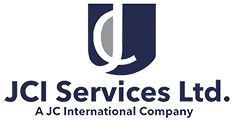The Oil and Gas industry is an exciting and rewarding field, with many opportunities for growth and advancement. However, breaking into this industry can be a challenge, particularly for beginners who lack the necessary skills, experience and certifications.
Undergoing training and obtaining certifications in the oil and gas industry is an excellent way to break into this competitive industry, and JC International offers a range of training and certification programs that are globally recognized and highly sought after in the Oil and Gas industry. Some of these certifications can be obtained without prior experience or qualifications, making them an accessible option for anyone looking to start a career in the industry.
This article will cover important certifications and training that can increase your chances of breaking into the oil and gas industry.
Rig Pass is a comprehensive safety orientation program designed for personnel working in the oil and gas industry. The program provides an overview of safety guidelines, procedures, and best practices specific to the industry, with a focus on ensuring that workers are adequately equipped to identify and manage hazards in the workplace.
Obtaining a Rig Pass certification is essential for anyone seeking employment in the oil and gas industry.
Rope access is a specialized technique used to access and work in high or difficult-to-reach areas, such as offshore platforms or oil rigs. Rope access technicians use ropes and harnesses to climb and descend structures, performing various tasks such as inspections, repairs, and maintenance. A rope access certification will teach you the necessary skills to perform these tasks safely and effectively.
Offshore crane operators are responsible for operating cranes on offshore platforms. They must be proficient in crane mechanics, rigging techniques, and safety procedures. An offshore crane operations certification will provide you with the necessary training to operate cranes effectively and safely in offshore environments.
Lifting operations involve the use of cranes, hoists, and other lifting devices to move heavy equipment and materials. This certification will teach you the safe and efficient operation of lifting equipment, as well as the proper rigging and slinging techniques to ensure that loads are secure and stable during lifting operations.
Non-destructive testing (NDT) inspection is a critical component of the oil and gas industry. NDT inspectors use specialized equipment and techniques to detect and evaluate defects or flaws in structures or equipment. A certification in NDT inspection will teach you the necessary skills and knowledge to perform inspections and ensure that structures and equipment meet safety standards.
Roustabouts and roughnecks are entry-level positions in the oil and gas industry. Roustabouts perform various tasks, including cleaning and maintaining drilling equipment, transporting materials and supplies, and assisting with the rigging and positioning of equipment. Roughnecks work on the drilling floor and are responsible for the physical labor involved in drilling and maintaining a well. Certifications in roustabout and roughneck positions will provide you with the necessary skills and knowledge to perform these tasks safely and effectively.
Riggers are responsible for the safe and efficient movement of heavy equipment and materials on offshore platforms. They are trained to operate cranes, rigging equipment, and other lifting devices. A certification in rigging operations will demonstrate your proficiency in rigging and lifting operations, making you a valuable asset to employers.
Health and safety is a critical aspect of the oil and gas industry. Workers in this field face a variety of hazards, including exposure to toxic substances, falls, and explosions. A certification in health and safety will teach you the necessary skills to identify and mitigate hazards, ensuring that you and your colleagues can work safely and effectively.
Inspection engineers are responsible for ensuring that equipment and structures meet safety and regulatory standards. They use specialized equipment and techniques to detect and evaluate defects or flaws in structures or equipment. A certification in inspection engineering will provide you with the necessary skills and knowledge to perform inspections and ensure that structures and equipment meet safety standards.
JC International is a renowned training organization with offices in Uganda, Lagos and Port Harcourt. They hold accreditation from renowned international & national bodies such as IADC, IWCF, IRATA, LEEA, NPORS, IWCF, IOSH, OPITO, NUPRC, and others. They offer a diverse range of training programs and certifications that are in high demand by the oil and gas industry, including those mentioned earlier.
In the competitive job market, possessing global certifications from a reputable organization such as JC International can make all the difference. It provides candidates with a competitive edge over their peers and enables them to stand out as highly qualified and capable candidates.
By completing training and certification programs at JC International, candidates can greatly enhance their employability and advance their careers, as their training is highly preferred by international oil companies. These certifications act as evidence to potential employers that candidates have completed comprehensive training and obtained specialized knowledge and skills, further highlighting their suitability for employment.
To Contact JC International, kindly visit www.jcinternationalng.com, call 256 700 422 795, 256 700 422 987 or send an email to info@jciservices.com, training@jciservices.com

